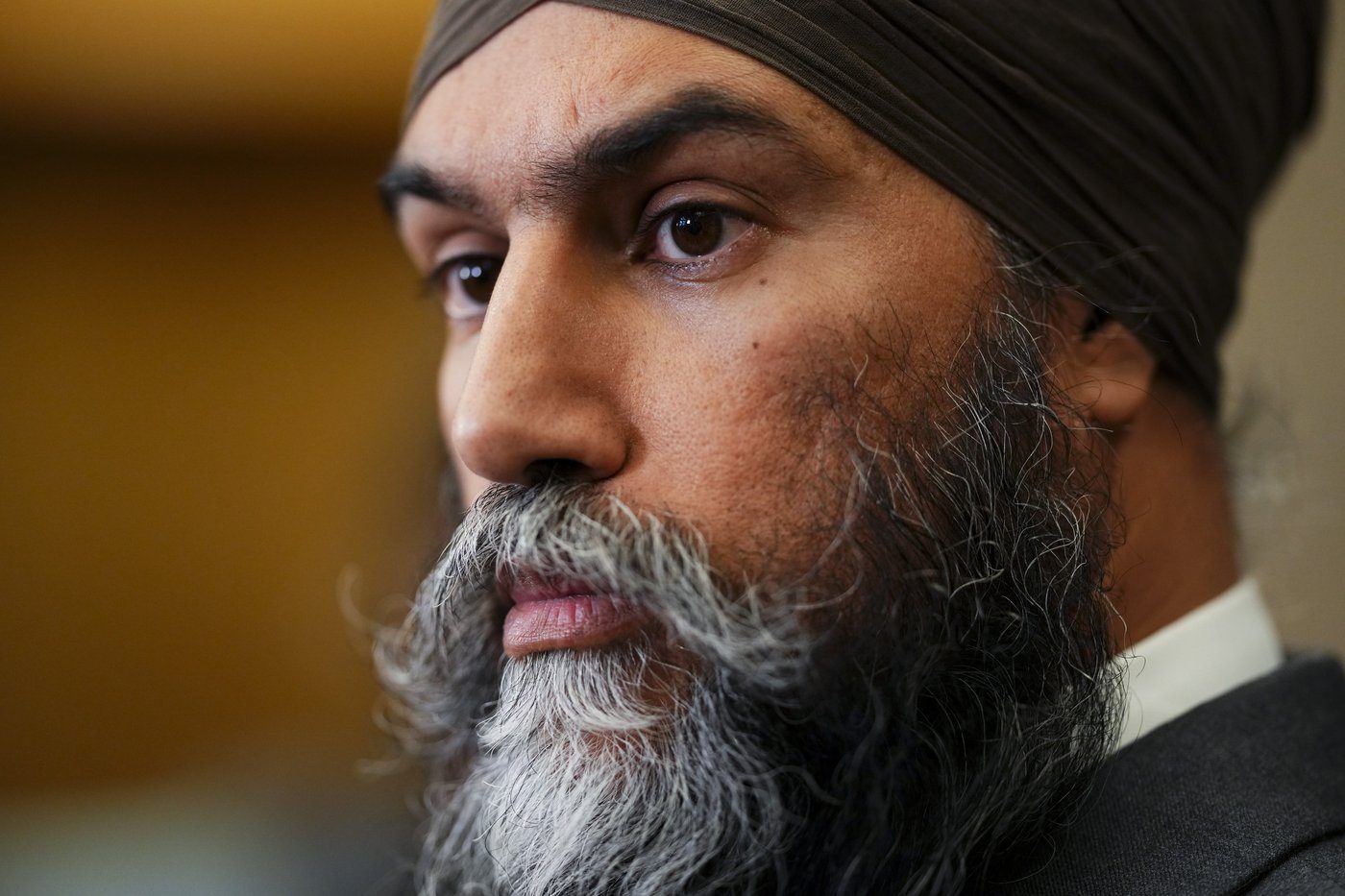One of the cleverest moments in Canadian politics will commence on Thursday.
It’s a publicity stunt, plain and simple. The concept is heavily politicized from top to bottom. There’s no chance that it will succeed in Parliament.
At the same time, it’s so brilliantly conceived, designed and laid out that it should be analyzed for posterity’s sake.
What is it? NDP leader Jagmeet Singh will vote against a Conservative non-confidence motion that’s largely inspired by – wait for it – his own words.
This relates to the Common Sense Conservative Motion, which is as follows:
Whereas the Leader of the New Democratic Party said he “ripped up” his supply and confidence agreement with the Liberal government,
Whereas the NDP Leader said, “the Liberals are too weak, too selfish and too beholden to corporate interests to fight for people”,
Whereas the NDP leader said, “the Liberal government will always cave to corporate greed, and always step in to make sure the unions have no power”, in response to the Liberal Labour Minister’s referrals to the Canadian Industrial Relations Board that ordered the workers of Teamsters Canada Rail Conference and the ILWU 514 to resume their duties, violating their right to strike;
Therefore, the House agrees with the NDP leader, and the House proclaims it has lost confidence in the Prime Minister and the government.
Singh’s NDP signed the supply and confidence agreement with Trudeau’s Liberals on March 22, 2022. It wasn’t an official coalition, and no NDP MP ever sat in a Liberal cabinet. Rather, the NDP agreed to “support the government on confidence and budgetary matters” while the Liberals agreed “to govern for the duration of the agreement.”
The two parties identified several “key policy areas where there is a desire for a similar medium-term outcome.” The introduction of a dental care plan for low-income Canadians, for instance. Passing the Canada Pharmacare Act by late 2023. Initiating large-scale emissions reductions by 2030. Ensuring ten days of paid sick leave was in place. A fairer tax system. Removing barriers to voting and participation – and more.
Dental care and pharmacare were both part of the NDP playbook. The overall costs of implementing these two programs would have been through the proverbial roof. The Parliamentary Budget Officer estimated in an Oct. 7, 2020 report that the NDP plan for a federal dental care program alone would have cost $1.4 billion during the 2020-21 fiscal year. Expenses would have escalated to $4.6 billion in 2021-22 as more Canadians shifted into the program, and then averaged $1.7 billion between 2022-23 and 2024-25.
Hence, these NDP proposals (among others) were rejected by most Canadian voters for being too costly, too bureaucratic and too inefficient. That’s not terribly surprising if we use history as a guide. Magic beans and free money growing on trees may appeal to a limited number of socialist thinkers and left-wing radicals, but most mainstream people know better than to support this nonsense.
Singh and the NDP failed to get most of what they wanted out of the supply and confidence agreement. And what they did get was far from what they truly desired.
The $13 billion Canadian Dental Care Program for low-income Canadians was launched on May 1, but has largely been a failure. Less than half of all oral health care providers had signed up by July, and the needle hasn’t moved much since. Two-thirds of Canadians who are supposed to be covered by this plan still weren’t eligible as of Oct. 31. Alberta Premier Danielle Smith said her province will opt out of the plan in 2026, and I wouldn’t be surprised if more premiers follow her lead. How the Liberals are going to get this dental plan in working order by January 2025, as they’ve suggested, is a mystery.
As for the Liberal-NDP pharmacare program, which was supposed to be in place by late 2023, it finally received royal assent on Oct. 10, 2024. The Liberals are hoping to have all the provinces on board in the spring of 2025. Don’t count on it, however.
Long story short, the NDP propped up a massively unpopular Liberal government for two and a half years, achieved little to nothing, and hurt their own electoral fortunes in the process. This helps explain why they abandoned the supply and confidence agreement in a huff on Sept. 4.
Singh can try to run away from his own words, but he won’t succeed. He said all of these things in a campaign-style video. You can watch it in its entirety here.
The NDP leader has already announced that he won’t support the forthcoming Conservative non-confidence motion. “I’m not going to be playing Pierre Poilievre’s games. I have no interest in that,” he told reporters in part on Dec. 3.
Yes, it’s a game. Of chess. And the Conservatives just got him at checkmate.
Singh will be forced to reject a Conservative non-confidence motion containing his own words in the House of Commons. There’s a way out of this, of course, but he’s already indicated he won’t follow that path. Hence, it’s going to make him look very foolish and will lead to several embarrassing campaign ads that he can’t ever escape.
Like I said, it’s all rather brilliant. Kudos to Poilievre and the Conservatives.
Michael Taube, a long-time newspaper columnist and political commentator, was a speechwriter for former Canadian prime minister Stephen Harper.






